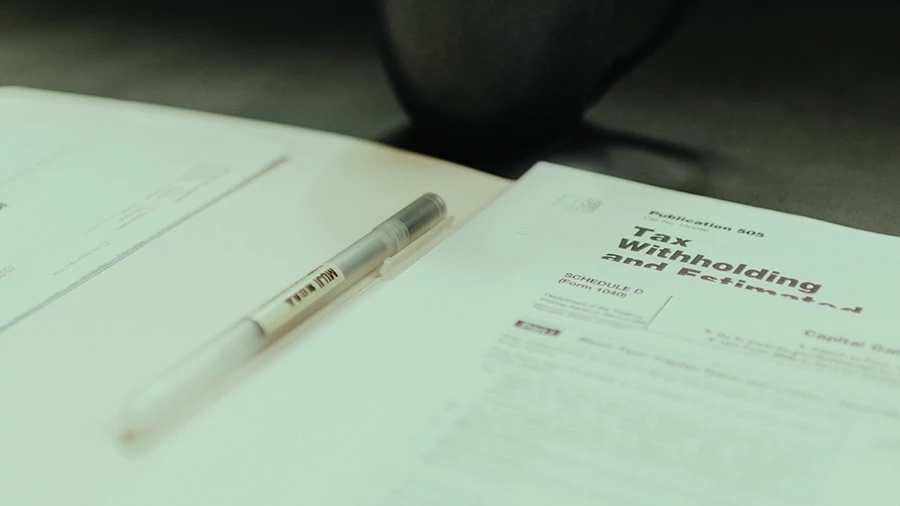The 6-year rule
As we step into 2024, marking the first six years since the rule's implementation in 2019, it's crucial to understand its implications, eligibility criteria, and benefits for those considering China as their home or place of work. This article delves into the nuances of the rule, offering a detailed guide for expatriates navigating this policy.
The 6-year rule is a regulatory framework designed to determine the tax liability of foreign nationals living in China as the host country. It primarily focuses on the length of stay within a given period, typically six years, to ascertain an individual's tax liability in China. Originating from the need to create a clear-cut guideline for tax purposes, this rule plays a crucial role in the global mobility landscape, affecting decisions related to work, residency, and personal income tax planning.
2024: a milestone year
The year 2024 emerges as a milestone under this regulation, being the first instance where the six-year clock has been set since 2019. This timeframe is particularly significant for those who have relocated or are considering relocation to China within this period.
Impact and benefits of the 6-year rule for expatriates
The following are several impacts and benefits, that inbound foreign individuals need to heed in order to thrive within the Chinese economic landscape seamlessly:
6-year rule challenges and opportunities:
- Dictates tax liability based on duration of stay in China.
- Affects global income tax scope and introduces specific legal responsibilities.
- Requires comprehensive tax planning for potential tax liability changes.
- Tax exemptions on specific income types reduce the overall tax burden.
Eligibility criteria
The 6-year rule: A non-China domiciled individual is taxed on China-sourced income only given that they have not resided in China for “6 consecutive years”. “6 consecutive years” means that the individual stays in China for 6 years consecutively, and each year they stay in China for 183 days (days with 24 hours inside China) or more and does not leave China for more than 30 days in a single trip during these 6 years. If a non-China domiciled individual resides in China for “6 consecutive years”, they will be liable for global taxation liability in China from the seventh year.
This classification has significant implications for foreigners’ financial and tax planning, making it an essential consideration for anyone looking to make China their long-term residence.
However, embedded within this rule is a crucial nuance that demands attention: the reset clause. The following methods could effectively reset the 6-year chain:
- Leave China in a single trip for more than 30 days in a calendar year; or
- Stay in China for less than 183 days in a calendar year.
This provision introduces a layer of complexity to tax planning, requiring individuals to consider the timing and duration of trips outside China carefully.
Tax residency, rates, and liability across different income levels
In China, the individual income tax (IIT) system is progressive, which means that higher percentages are applied to higher income bands. The tax rates range from 3 percent to 45 percent. Here’s a detailed breakdown:
For residents, the calculation of IIT on annual comprehensive income is based on the following progressive tax rates:
|
Income Source |
Gross Income Bracket (CNY) |
Tax Rate |
|
Residents |
0 to 36,000 |
3% |
|
Over 36,000 to 144,000 |
10% |
|
|
Over 144,000 to 300,000 |
20% |
|
|
Over 300,000 to 420,000 |
25% |
|
|
Over 420,000 to 660,000 |
30% |
|
|
Over 660,000 to 960,000 |
35% |
|
|
Over 960,000 |
45% |
For non-residents, IIT on employment income, remuneration for labour services, author’s remuneration, and royalties are calculated by each category on a monthly or transaction basis at the below progressive tax rates:
|
Income Source |
Gross Income Bracket (CNY) |
Tax Rate |
|
Non-Residents |
0 to 3,000 |
3% |
|
Over 3,000 to 12,000 |
10% |
|
|
Over 12,000 to 25,000 |
20% |
|
|
Over 25,000 to 35,000 |
25% |
|
|
Over 35,000 to 55,000 |
30% |
|
|
Over 55,000 to 80,000 |
35% |
|
|
Over 80,000 |
45% |
Income earned by individuals from privately-owned businesses, sole proprietorship enterprises, or partnerships is generally subject to IIT at progressive rates from 5 percent to 35 percent:
|
Income Source |
Income Bracket (CNY) |
Tax Rate |
|
Private Business Income |
0 to 30,000 |
5% |
|
Over 30,000 to 90,000 |
10% |
|
|
Over 90,000 to 300,000 |
20% |
|
|
Over 300,000 to 500,000 |
30% |
|
|
Over 500,000 |
35% |
A flat rate of 20 percent is applied to the remaining categories of income, including:
- Income from interest, dividends and bonuses;
- Income from lease of property;
- Income from transfer of property; and
- Contingent income.
Unless specifically reduced by the State Council.
Special tax considerations, deductions, and exemptions for foreign income
There are several special tax considerations for various types of overseas income. Here are some key points:
- Classification of overseas income: The Ministry of Finance and State Taxation Administration issued the Announcement on Individual Income Tax Policies Relating to Foreign Income (Announcement No.3) on January 17, 2020. This announcement provides detailed guidance on taxation and tax administration on the overseas income of Chinese tax-resident individuals. The following categories of income are considered as overseas income:
- Income from the provision of labor services outside China.
- Remuneration for manuscripts is paid and borne by enterprises and other organisations outside China.
- Royalty income received from the grant of concessions outside China.
- Income from business operations and productions outside China.
- Interest and dividend income obtained from enterprises, other organizations, and non-resident individuals outside China.
- Income from lease of overseas properties.
- Capital gains from the transfer of real estate, transfer of equity stocks, stock options, or other financial assets of overseas enterprises or other organisations, or from the transfer of other assets outside China.
- Incidental income is obtained from enterprises, other organisations, and non-resident individuals outside China.
- Fringe benefits to foreign employees: Expats working in China could enjoy tax-exempt benefits-in-kind including the below eight categories:
-
- Housing expense
- Education expenses for children
- Language training expense
- Meal fee
- Laundry fee
- Relocation expense
- Business travel expense
- Home leave expense
Such benefits-in-kind could be exempt from China IIT on the basis that such expenses are on an actual reimbursement basis with valid supporting documents like invoices (i.e., fapiao) with reasonable amounts.
In addition, there are some specific requirements for each category. For example, for home leave expenses, only the travel expenses for the expatriate himself/herself from China to the expatriate’s (or his/her spouse’s) home country for up to two trips per year could be exempt from IIT.
Strategies and considerations
Understanding the 6-year rule requires a strategic approach. Here are several considerations for effectively navigating this regulation:
- Professional advice: Consulting with tax professionals and legal advisors who specialize in international law can provide personalized guidance tailored to an individual's specific circumstances.
- Record keeping: Diligent travel record-keeping of one's China residence days is essential for substantiating claims and ensuring compliance with the 6-year rule.
- Proactive planning: Anticipating the implications of the 6-year threshold allows for proactive travel and tax planning, minimizing potential disruptions and optimizing tax outcomes.
FAQ: The 6-year rule for inbound foreign individuals
What is the 6-year rule for inbound foreign individuals in China?
The 6-year rule is a regulatory framework designed to determine the tax liability of foreign nationals living in China as the host country. It primarily focuses on the length of stay within a given period, typically six years, to ascertain an individual's tax liability in China. Originating from the need to create a clear-cut guideline for tax purposes, this rule plays a crucial role in the global mobility landscape, affecting decisions related to work, residency, and personal income tax planning.
How does the 6-year rule impact tax liabilities for foreign individuals?
Once the threshold of the 6-year rule is reached, foreign individuals are subject to China's progressive income tax rates, ranging from 3 percent to 45 percent on their global income. This status requires comprehensive tax planning to manage potential tax liabilities effectively.
Is there any solution to break the 6-year rule?
Yes, the 6-year rule could be effectively reset with either of the following two methods:
- Leave China in a single trip for more than 30 days in a calendar year; or,
- Stay in China for less than 183 days in a calendar year.
What benefit can qualifying individuals expect under the 6-year rule?
Basically speaking, qualifying individuals can enjoy the benefits of tax exemptions on specific income types while living or working in China.
What strategies should be considered for effectively navigating the 6-year rule?
Effective navigation of the 6-year rule involves consulting with tax professionals for personalized advice, diligent travel record-keeping of travel history and China residence days, and proactive tax planning. Anticipating the rule's implications allows for minimizing potential disruptions and optimizing tax outcomes.







